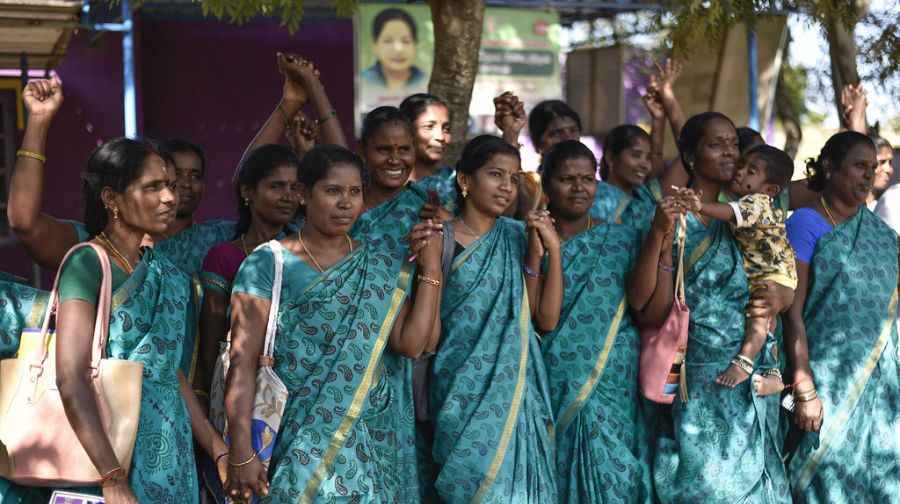Health Worker Female Salary: Health worker women are essential to healthcare systems, from rural clinics to city hospitals, providing critical healthcare services that impact community well-being. If you’re interested in becoming a health worker or just curious about the salary and growth prospects, this article offers a friendly and comprehensive guide. We’ll cover everything from the average salary for health workers in the public and private sectors to key tips for increasing your earnings over time. Let’s dive in to see what you can expect in this rewarding career.

What Does a Health Worker Do?
Female health workers play an important role in patient care, especially in areas like prenatal and postnatal health, vaccination drives, family planning education, and primary healthcare services. These responsibilities are vital in ensuring accessible healthcare for communities, and health worker women are often the backbone of health services, especially in rural areas.
Factors Affecting Health Worker Female Salary
The salary for female health workers can vary significantly based on a few main factors:
- Location: Salaries in urban areas tend to be slightly higher compared to rural settings, though rural positions may offer additional benefits.
- Experience and Education: Increased experience and specialized healthcare certifications lead to higher earning potential and career advancement.
- Public vs. Private Sector: Government jobs offer steady benefits and pay increments, while private-sector jobs may have different pay scales based on the organization and role.
Average Salary for Health Workers in the Government Sector
In the government sector, the starting salary for a female health worker generally falls between ₹10,000 to ₹25,000 per month. This salary can increase with experience, often reaching ₹30,000 or more for senior roles. Government health workers also benefit from additional perks, such as pension plans, health insurance, and provident fund (PF) contributions, which add financial security to the role.
Salary for Female Health Workers in the Private Sector
In private healthcare, the salary of health worker women tends to be slightly higher, especially for those with specialized skills or certifications. Entry-level pay in the private sector typically ranges from ₹15,000 to ₹30,000 per month, depending on the organization. With experience, private sector health workers can expect salary hikes, especially if they pursue further specialization or management roles within healthcare facilities.
How to Increase Your Salary as a Health Worker
If you’re looking to increase your health worker salary, here are some effective tips:
- Enhance Your Skills: Pursuing certifications in fields like nursing, first aid, and healthcare management can boost your salary prospects.
- Gain Experience: Experience is a key factor for earning potential, as many government roles offer salary increments and promotions with time.
- Enroll in Specialized Courses: Short courses and certifications that improve specific healthcare skills can help you stand out, especially in the private sector, which may reward specialized knowledge with higher pay.
Benefits of a Career as a Health Worker
A career as a female health worker offers several advantages beyond just the salary:
- Respect and Social Impact: Health workers are often highly respected for their service to the community, especially in underserved areas.
- Job Stability and Benefits: In government positions, health workers receive benefits like pensions, healthcare coverage, and steady promotions.
- Long-Term Career Opportunities: The demand for healthcare professionals continues to grow, providing long-term career stability in both rural and urban areas.
Challenges in the Health Worker Role
Though rewarding, health worker roles come with their own set of challenges:
- Long Working Hours: Health workers, especially in hospitals, may need to work extended hours or respond during emergencies.
- Geographical Challenges: Health workers in rural areas may face challenges with transportation and infrastructure.
- Initial Salary Levels: For those starting in this field, the initial health worker salary may seem modest, which can be a challenge when starting out.
Final Thoughts
In conclusion, a female health worker career is both rewarding and impactful, with a promising salary range that grows with experience and specialization. While the initial salary may be on the modest side, the long-term career growth, respect, and financial security make it an excellent choice for anyone interested in healthcare.
With dedication and continuous learning, you can not only increase your salary but also make a real difference in people’s lives. We hope this guide provides helpful insights into the salary and career outlook for health worker women, helping you decide if this fulfilling path is right for you.
Health Worker Female Salary FAQs
Answer: The starting salary for a female health worker in India typically ranges from ₹10,000 to ₹25,000 per month in the government sector, depending on the location and state policy. Private sector salaries might start a bit higher, around ₹15,000 to ₹30,000 per month, based on the organization and role.
Answer: Health workers can increase their salaries by gaining experience, pursuing certifications (e.g., in nursing or first aid), and participating in specialized training courses. Moving into roles with more responsibilities or managerial duties can also lead to higher pay.
Answer: Yes, health workers in government positions often enjoy benefits such as provident fund contributions, health insurance, pension plans, and regular salary increments. These additional perks add long-term financial security beyond just the monthly salary.
Answer: Yes, salaries for health workers may vary slightly between rural and urban areas. While urban roles often offer a slightly higher starting salary, rural positions sometimes provide additional allowances or benefits to compensate for location-specific challenges.
Answer: With experience, health workers can see a gradual increase in their salaries. In the government sector, experienced health workers can earn up to ₹30,000 or more per month. In the private sector, experienced or specialized health workers can often negotiate higher salaries based on their skills and expertise.